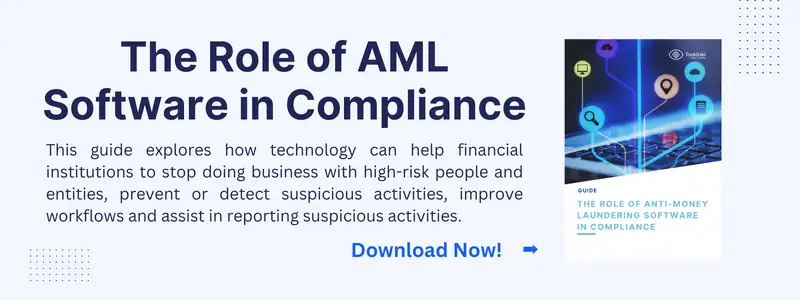ABC (Anti-Bribery and Corruption) compliance involves the implementation of policies and procedures to prevent bribery and corruption within an organization. These measures are designed to uphold ethical standards and ensure adherence to legal and regulatory requirements.
Effective ABC compliance programs not only protect organizations from legal penalties but also enhance their reputation and trustworthiness in the market. By fostering a culture of integrity and transparency, companies can mitigate risks associated with bribery and corruption, ultimately leading to sustainable business growth.
Key Components of ABC Compliance Programs
Governance and Oversight
Effective governance and oversight are critical components of ABC compliance programs. The Board of Directors and senior management play a pivotal role in establishing and maintaining these programs. They are responsible for setting the tone at the top, demonstrating a commitment to ethical behavior, and ensuring that compliance policies are integrated into the corporate culture.
Responsibilities are often delegated to compliance committees, which oversee the implementation and effectiveness of the ABC compliance measures. These committees ensure that the organization adheres to its anti-bribery and corruption policies and continuously monitors and updates the compliance framework.
Risk Assessment and Management
Risk assessment is a crucial step in developing an effective ABC compliance program. Organizations must identify potential bribery and corruption risks within their operations and evaluate the likelihood and impact of these risks. Once identified, appropriate mitigating controls should be developed and implemented to address these risks. This process involves continuous monitoring and reassessment to ensure that the controls remain effective and relevant in the face of evolving threats and regulatory requirements.
Detailed Elements of ABC Compliance
Anti-Bribery Policies and Procedures
Creating and enforcing comprehensive anti-bribery policies is fundamental to any ABC compliance program. These policies should clearly define what constitutes bribery and corruption, including the prohibition of promising, offering, or receiving bribes. Organizations must ensure that all employees understand these policies and the severe consequences of non-compliance. Effective procedures should also be in place to detect and report any suspected incidents of bribery, ensuring a swift and appropriate response to mitigate potential damage.
Training and Awareness
Regular training sessions are essential for ensuring that employees understand and comply with ABC policies. Training programs should cover the organization’s anti-bribery policies, the legal and ethical implications of bribery, and the procedures for reporting suspected incidents. Awareness initiatives, such as workshops and seminars, help reinforce the importance of ABC compliance and keep employees informed about the latest developments and regulatory changes. This continuous education fosters a culture of integrity and vigilance within the organization.
Monitoring and Reporting
Effective monitoring and reporting mechanisms are crucial for the success of ABC compliance programs. Organizations should establish systems that allow employees to confidentially report any suspected bribery or corruption activities without fear of retaliation. These systems should ensure that all reports are thoroughly investigated and appropriate actions are taken. Regular monitoring of compliance activities and internal audits can help identify potential issues early, ensuring that the organization remains compliant with its anti-bribery policies and regulatory requirements.
Effective Risk-Based Controls
Third-Party Due Diligence
Third-party relationships pose significant bribery and corruption risks. Organizations must conduct thorough due diligence to assess the risks associated with engaging third parties, including suppliers, agents, and partners. This process involves evaluating the third party’s background, business practices, and compliance with anti-bribery laws. Additionally, monitoring activities related to gifts, hospitality, and donations helps ensure that these practices do not become channels for corrupt activities. Implementing robust third-party due diligence measures can significantly reduce the risk of indirect involvement in bribery and corruption.
Regular Audits and Continuous Improvement
Regular audits of ABC compliance programs are essential for ensuring their effectiveness. Independent audits help identify gaps and areas for improvement, providing valuable insights into the program’s strengths and weaknesses. Organizations should use audit findings to update and enhance their policies and procedures, ensuring continuous improvement. This proactive approach helps maintain a robust compliance framework that can adapt to evolving regulatory requirements and emerging threats.
Global Standards and Regulations
International Guidelines
Several international bodies, such as the Wolfsberg Group and the Organization for Economic Cooperation and Development (OECD), provide guidelines for anti-bribery and corruption compliance. These guidelines help organizations develop effective ABC programs by outlining best practices and standards. Adhering to these international guidelines ensures that organizations meet global compliance expectations and enhance their credibility and trustworthiness.
National Regulations
Different countries have their own anti-bribery laws and regulations, such as the UK Bribery Act and the US Foreign Corrupt Practices Act (FCPA). Understanding and complying with these national regulations is crucial for organizations operating in multiple jurisdictions. These laws often have extraterritorial reach, meaning that they can apply to actions taken outside the country’s borders. Organizations must ensure that their ABC compliance programs are designed to meet the requirements of all relevant national regulations.
Enhance Your Compliance Framework with Tookitaki's Advanced Solutions
Robust ABC compliance programs are essential for organizations to maintain ethical standards and prevent legal issues. Implementing comprehensive policies, regular training, and continuous monitoring can significantly mitigate bribery and corruption risks. Adhering to global standards and national regulations ensures that organizations remain compliant and enhance their credibility in the market.
Discover how Tookitaki's Anti-Financial Crime (AFC) Ecosystem and FinCense platform can revolutionize your compliance processes. Contact us today to learn more about our cutting-edge compliance technology solutions.
Anti-Financial Crime Compliance with Tookitaki?





